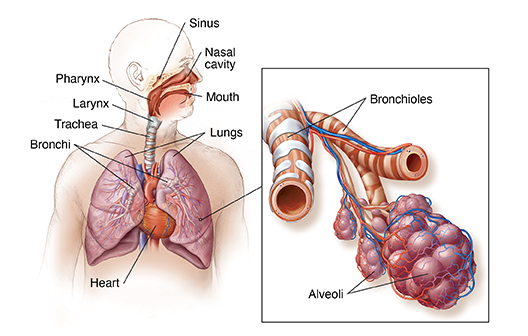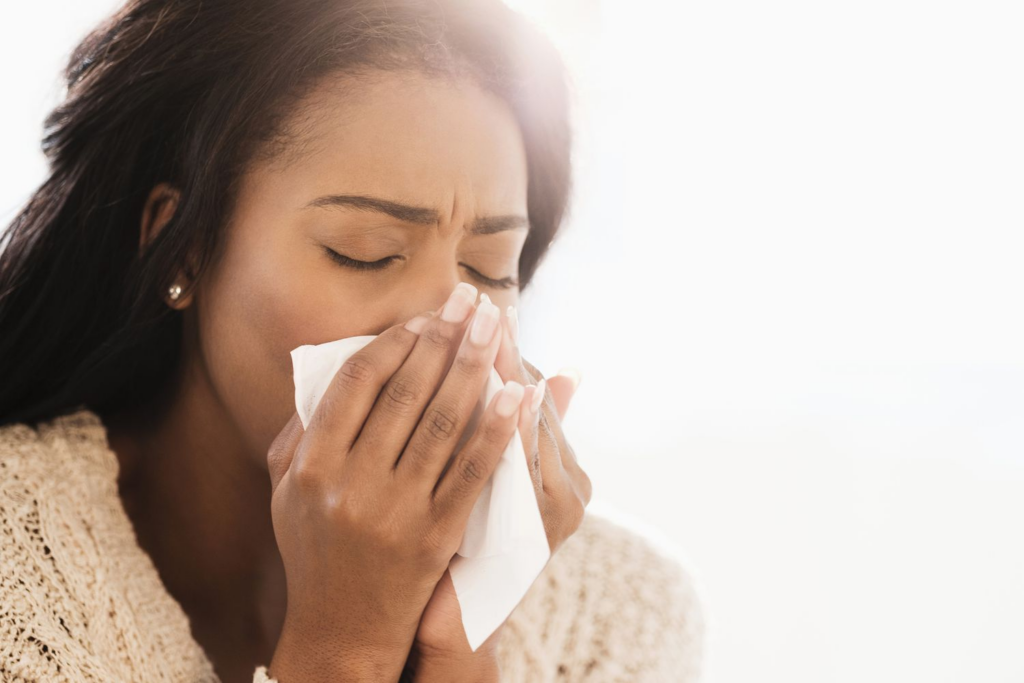Respiratory and sinus health are crucial for general well-being. Following preventative steps can reduce the likelihood of developing common respiratory issues, including sinusitis, allergies and infections.
Regular handwashing, limiting exposure to environmental irritants and vaccination against respiratory diseases like the flu are among the prevention methods.
Similarly, a robust immune system is supported by drinking enough water and eating a balanced diet of vitamins and minerals, which help prevent respiratory problems. By implementing these techniques daily, people may actively protect their sinus and respiratory health.
Understanding sinus and respiratory health: The importance of clear airways

The respiratory system and sinuses are essential for breathing, filtration and defense against airborne diseases. For effective respiratory function, airways must be free of obstructions.
The air-filled chambers, known as the sinuses, linked to the nasal passages, assist in humidifying and filtering the air we breathe.
Infections, allergies, or other conditions can cause these passageways to become clogged or inflamed, resulting in sinus congestion and pain. Since the respiratory system comprises the airways, lungs and diaphragm, respiratory health is intimately related to sinus health.
The airways must remain open and unobstructed for effective breathing and general respiratory health.
Maintaining clean airways and fostering ideal sinus and respiratory health need good nose hygiene and avoiding irritants.
Daily nasal hygiene practices: Maintaining clean and healthy sinuses
The health of your sinuses and general respiratory system can be dramatically impacted by your daily nose hygiene routine.
Removing extra mucus, allergens and irritants from the nasal passages lowers the possibility of sinus infections and congestion.
Simple procedures, such as using a saline nasal spray or rinse, can help clear pollutants and hydrate the nasal passages. To prevent respiratory problems, limiting exposure to allergens and contaminants in the environment is essential.
Additionally, maintaining hydration and eating a healthy, vitamin C and antioxidant-rich diet helps the immune system function, which improves sinus and respiratory health. Maintaining clean, healthy sinuses and promoting general respiratory wellness can be greatly improved by incorporating these everyday practices into a routine.
Strengthening the immune system: Boosting respiratory health naturally
A strong immune system is necessary to protect the body from infections and preserve ideal respiratory health. The immune system may be strengthened through several natural methods.
It has been demonstrated that regular exercise improves lung capacity and immunological function. Under the same stress management and getting enough sleep are also crucial for supporting the immune system.
An immune-supportive diet high in fruits, vegetables and whole grains delivers vital vitamins and minerals. Vitamin C, zinc and antioxidants are particularly helpful for the respiratory system’s health.
Along with foods for sinus infection, refraining from smoking and abusing alcohol also contributes to maintaining the respiratory system’s health.
Thus, by using these organic immune system boosters and advancing general health, people can strengthen their defenses against respiratory infections.
Environmental factors and allergies: Minimizing triggers for respiratory issues

Environmental variables, especially for those with allergies or sensitivities, can substantially influence respiratory health.
Pollen, mildew, pet dander and dust mites are airborne allergens that can cause symptoms, including sneezing, congestion, and wheezing.
To manage these difficulties, exposure to specific triggers must be minimal. Reduced indoor allergens can be achieved by keeping interior rooms clean and well-ventilated.
Using HEPA-filtered vacuum cleaners and air purifiers can both aid in removing airborne debris. Wearing sunglasses and a hat when outside during high pollen seasons might lessen pollen exposure to the eyes and hair.
Additionally, arranging outside activities in accordance with daily pollen counts might help reduce allergy exposure.
Respiratory health and quality of life can be significantly improved by taking proactive steps to reduce environmental stressors.
Exercise and breathing techniques: Enhancing lung capacity and function
On the other hand, the health of the respiratory system as a whole can be significantly influenced by regular exercise and attentive breathing practices.
Exercises that build the heart and lungs, such as running, cycling or brisk walking, can be done regularly. Additionally, it increases oxygen circulation, increasing the respiratory system’s effectiveness.
Deep breathing techniques, including diaphragmatic or pursed-lip breathing, can help promote calm and expand lung capacity.
People with respiratory diseases like asthma or chronic obstructive pulmonary disease (COPD) can better control their symptoms by routinely practicing these procedures.
Healthy lung function is also supported by keeping proper posture and limiting exposure to environmental contaminants.
Therefore, people can improve their lung function and support overall respiratory wellness by prioritizing regular exercise and including breathing exercises in their everyday lives.
Seeking professional help: When to consult a healthcare provider for respiratory concerns
It’s critical to get medical attention from a healthcare practitioner if you have persistent or alarming respiratory symptoms.
Chronic cough, breathlessness, chest discomfort or wheezing are signs of underlying respiratory disorders that must be examined and treated.
Additionally, regular check-ups with your healthcare practitioner are necessary for monitoring and adequately treating your condition if you have a history of respiratory problems, such as asthma or chronic obstructive pulmonary disease (COPD).
Early detection of possible respiratory issues and prompt contact with a healthcare provider enable accurate diagnosis, individualized treatment plans, and prompt action. This assures improved long-term respiratory health.

Jean Smith is a fitness enthusiast and blogger who focuses on fitness and a healthy lifestyle. She is passionate about assisting people in living healthier lifestyles and is constantly on the lookout for new and creative methods to stay fit and healthy. Her articles are excellent resources for anyone interested in improving their health and fitness.
